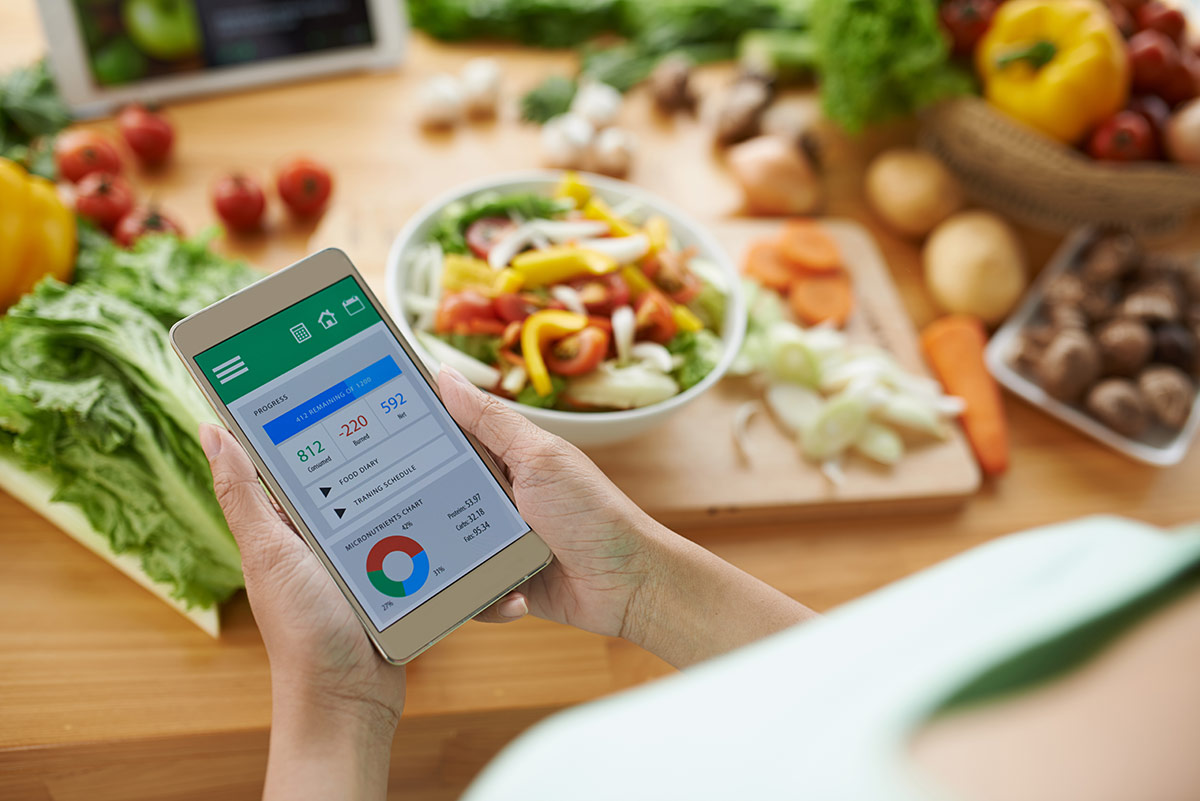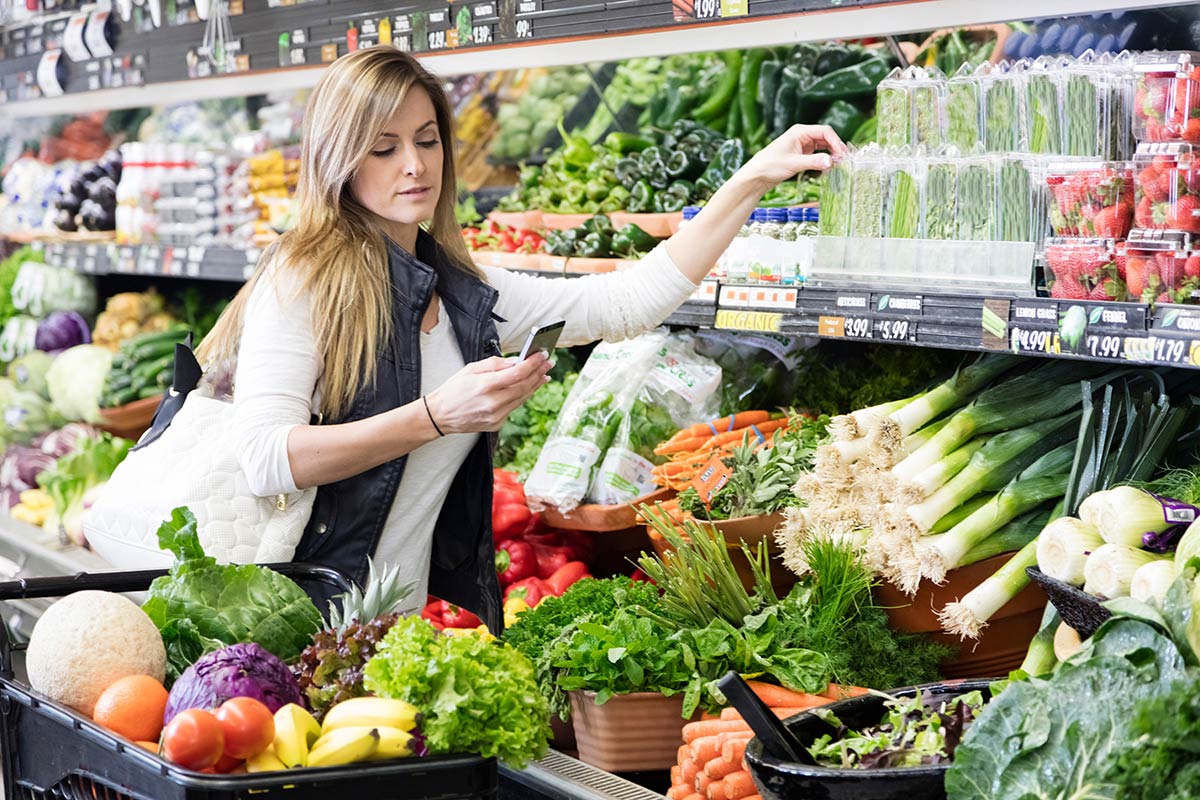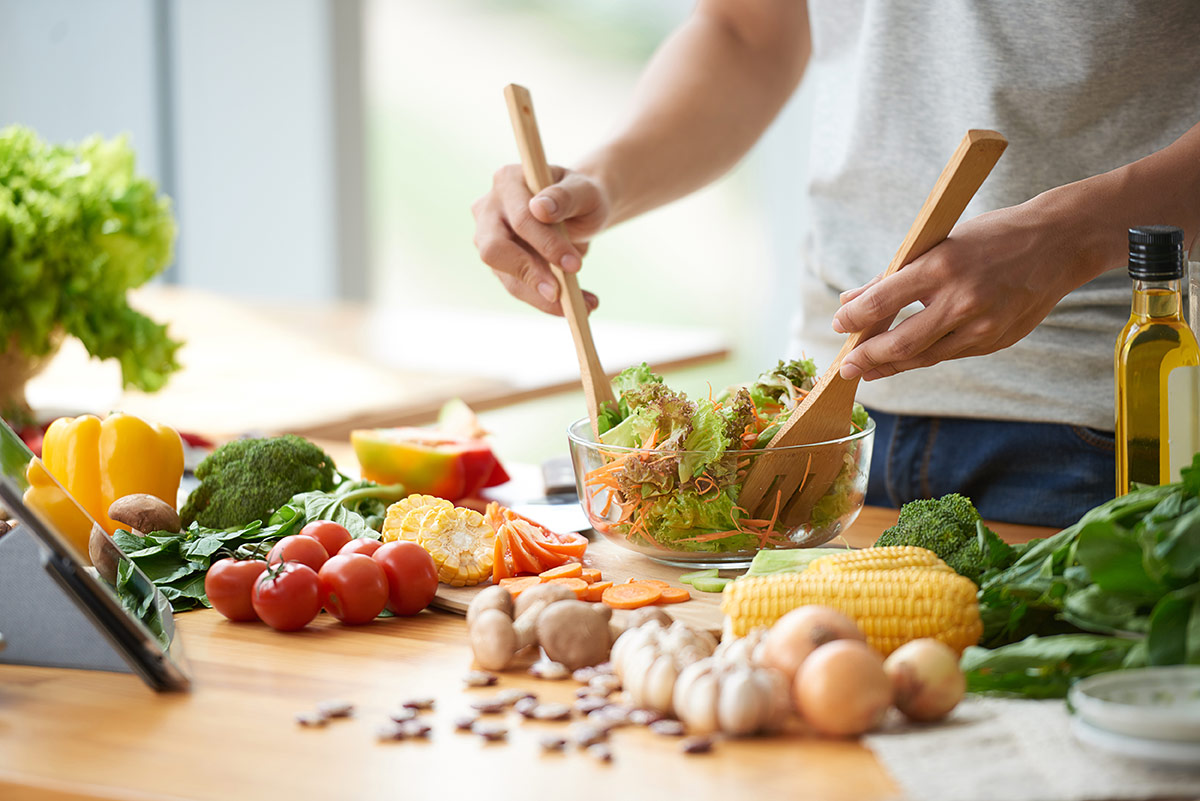
Mobile apps are a valuable aid in getting a healthy meal on the table, says Nutrition and Dietetics student Chelsea Mauch.
The Flinders University PhD candidate is conducting research into mobile apps that focus on healthy eating through menu or recipe planning, shopping list and meal kit orders, focusing on the needs of time-poor parents who feel overwhelmed by planning, purchasing and preparing meals for themselves and their families.
Her research has identified several apps that cover helpful aspects of healthy meal delivery – which she presented at the Dietitians’ Association of Australia national conference in Sydney last month – but she added that space exists for a superior app to be introduced that covers all essential basics.
“Mobile applications could reduce the mental load of meal planning, purchasing and preparation, which is particularly relevant to time-poor, modern working families,” Ms Mauch says.
“Often, the evening meal suffers, with parents succumbing to buying and consuming convenience or takeaway foods rather than preparing healthier, home-cooked meals – and this has implications for child health and obesity levels.
“As mobile phones are being carried and used by their owners almost constantly, they offer the opportunity to provide immediate support both when and where food decisions are made.
“The proliferation of these apps signals a technological shift where mobile devices can be used to help us achieve or change a behaviour, and not simply monitor it.”

Chelsea’s research points to Mealime and PlanBuyCook as two good examples of such apps, but noted that there is a lack of apps relevant to families with young children that facilitate meal planning and offer a high level of personalisation, without the need for excessive user input.
Recipe managers work well if you prefer using your own recipes, but they can be time-consuming to set up, and tend to suit those with a planning personality type.
“Look out for those that allow the direct import of recipes from websites to save you typing,” she says, suggesting Recipe Keeper for a simple, cheap way to save and store recipes.
Kitchen Stories and Epicurious apps offer education and skill development through simple food preparation videos, she adds.
Automated shopping list generation and meal kit or grocery ordering apps enable outsourcing some important but tedious and time-consuming tasks required to provide a healthy, home cooked meal.

“Meal kit services such as Hello Fresh can be extremely useful for those wanting a little more support and convenience, while still allowing you to enjoy the cooking process,” she says.
Access to a shared shopping list and meal planner in family organiser apps can divide tasks among family members, although they require time to set up. While many family organisers require a subscription at a substantial yearly cost, the OurHome app is free and may suit families with older children – and every aid helps reinforce better eating options for families.
“The average family today is stretched to the limit – both in terms of time and finances,” says Associate Professor Rebecca Golley, from the Flinders Nutrition and Dietetics research group.
“More importantly, a simple question like ‘what’s for dinner’ can be the final straw in mental juggle of balancing work, school, extra-curricular activities in a family.
“We think that technology can ease that mental load, and get families eating better,” says Associate Professor Golley, who attended the International Society of Behavioural Nutrition and Physical Activity conference this month.
“Mobile apps have the potential to support the improvement of our meal planning, food purchasing and meal preparation behaviours.”
Ms Mauch is using her research results to develop an ideal family-friendly mobile app to making dinner time easier, combining the best elements of commercial apps with best practice in supporting real time behaviour change

